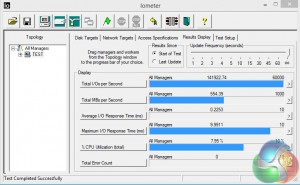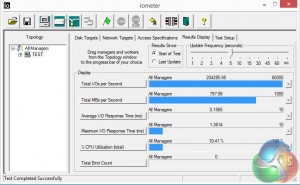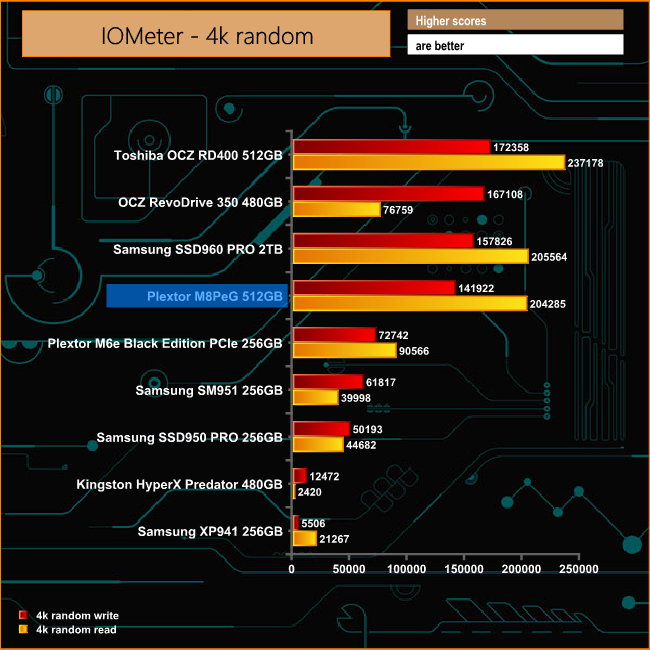IOMeter is another open source synthetic benchmarking tool which is able to simulate the various loads placed on hard drive and solid state drive technology.
We test with both random read and write 4k tests, as shown above. There are many ways to measure the IOPS performance of a Solid State Drive, so our results will sometimes differ from manufacturer’s quoted ratings. We do test all drives in exactly the same way, so the results are directly comparable.


Plextor quote random 4K read and write performance of the M8Pe(G) at up to 260,000 IOPS for reads and up to 250,000 for writes. With our IOMeter test configuration, we got reads of 204,285 IOPS and writes of 141,922 IOPS which are some way off the official figures but still show the drive to be a powerful performer.
 KitGuru KitGuru.net – Tech News | Hardware News | Hardware Reviews | IOS | Mobile | Gaming | Graphics Cards
KitGuru KitGuru.net – Tech News | Hardware News | Hardware Reviews | IOS | Mobile | Gaming | Graphics Cards





“AS SSD is another test where the M8Pe(G) scores highly. It’s interesting to contrast the drive with the last PCIe interfaced Plextor drive we looked at – the M6e Black Edition. It’s a sign of how far SSD technology has progressed in the year since the M6e was launched that its performance is totally eclipsed by the M8Pe(G).”
The M6e is limited to pcie 2.0×2 lanes, so comparing that to the m8pe which is pcie 3.0×4 is apples and oranges…you can’t really determine if the performance jump is due to more lanes, better nand, a better controller or all of them.
it’s easy to get here in the U.S., and it’s the cheapest of the high performance pcie 3.0×4 m.2 drives with the 512GB m.2 version, like in the review, going for $239 USD(€218/£197) on newegg
Thanks for pointing that out. I have updated the “hard to find” comment to point out that it is in reference to the UK market, at the time of writing.
Just a quick question. Do those SSDs need UEFI bios to work or they will work properly even with motherboards having legacy BIOS? Thanks in advance!